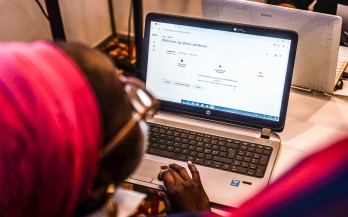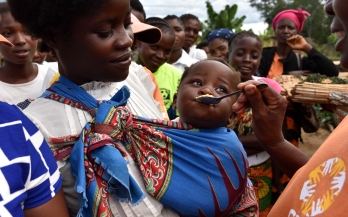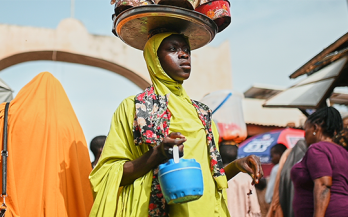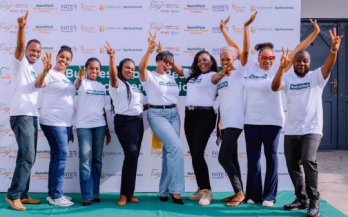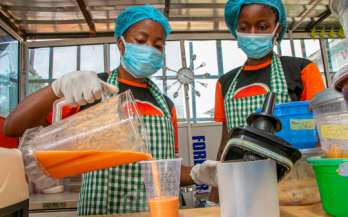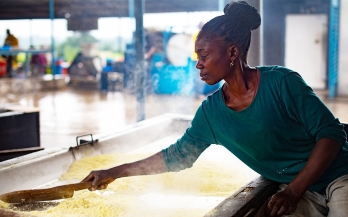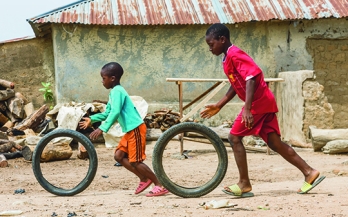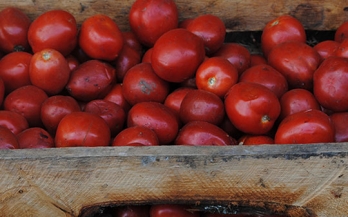Community of Practice: Bringing together entrepreneurs for better food systems in Nigeria
As the world marks Global Entrepreneurship Week 2025 under the theme “Together We Build,” the SUN Business Network (SBN) Nigeria is taking a bold step toward strengthening collaboration among entrepreneurs driving change in the food system. With the recent launch of its website and Community of Practice, SBN Nigeria is creating a vibrant space where nutrition-focused businesses can learn, connect, and grow together. This milestone represents more than a digital achievement, it’s a movement toward building a community where shared ideas fuel innovation, partnerships inspire action, and entrepreneurs collectively shape a healthier, more resilient food system for Nigeria.
Every October, the world comes together to mark World Food Day, a moment to reflect on progress and renew our commitment to building food systems that nourish everyone. The 2025 theme, “Hand in Hand for Better Foods and a Better Future,” speaks to the power of collaboration. At GAIN Nigeria, we see this play out every day in our partnerships across governments, industry, and civil society. It is not just about what we do as an organization it is about what we achieve together. One powerful example of this is the Digital Fortification Quality Traceability Plus platform (DFQT+) platform, now transforming how fortified foods are monitored in Nigeria.
The Private Service Provider (PSP) knowledge, attitudes, and practices (KAPs) assessment was done to see how well PSPs who were trained by the CASCADE project and worked with the National Home-Grown School Feeding Program (NHGSFP) remembered and used what they learnt about basic nutrition, food safety, hygiene, and handling raw materials.
The NHGSFP aims to provide daily nutritious meals to public primary school pupils using locally grown farm produce, thereby enhancing children's health, increasing school attendance, and supporting local farmers while contributing to the overall economic and social development of Nigeria. The program was suspended in January 2024 for nine weeks; however, since the suspension by the president, the program has yet to kick off, even with budgetary allocations in the 2024 and 2025 budgets. This suspension has hindered the effective application of the knowledge and skills gained during the training.
The intersection of climate change and food security took center stage at the recent Nigeria Climate Change Forum, where experts gathered to discuss sustainable solutions for ensuring food and nutrition security amidst growing climate challenges.
Consuming a healthy diet is vital for people’s well-being – to live well, grow, and stay active. Nigeria’s vibrant food systems have the critical job of nourishing Africa’s largest nation – a growing and youthful population that needs to be well-fed to meet its potential.
Since most people get a large portion of their food from the private sector, private-sector companies can play a key role in improving nutrition by bringing more safe and nutritious products to market, in forms that are appealing and affordable to consumers. This is ever more important in Nigeria today, where annual food inflation in December 2023 reached 28% - putting healthy diets beyond the reach of many lower-income consumers.
Read our ninth story in the series on The Food Crisis: What's Happening, a collection of work on the current events and the impact communities are seeing on a global scale. The Food Crisis is affecting everyone socially, economically and nutritionally. Michael Ojo and Joyce Akpata discuss newly published dire statistics on Nigeria's poverty index, and how urgent action is needed.
Read our seventh story in the series on The Food Crisis: What's Happening, a collection of work on the current events and the impact communities are seeing on a global scale. The Food Crisis is affecting everyone socially, economically and nutritionally. Joyce Akpata, Head of Policy and Advocacy at GAIN Nigeria, discuss the wide reaching ripple effect the economic crisis will have on Nigeria, affecting the most vulnerable in society, and what actions need immediate attention.
GAIN’s new Postharvest Loss Alliance for Nutrition (PLAN) addressed the Third All Africa Horticultural Congress (AAHC) at the International Institute of Tropical Agriculture in Ibadan, Nigeria. The AAHC brings together actors from a variety of sectors working to improve African horticulture systems to “build synergies and unleash the underexploited potential of horticulture in Africa.”


